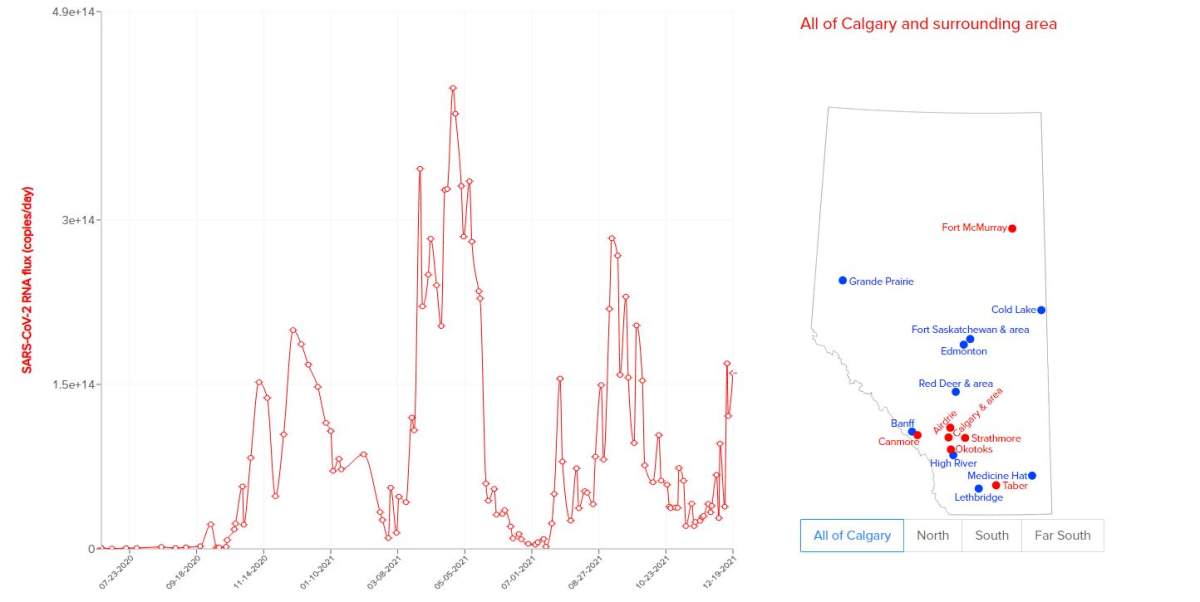New numbers are expected to be released on Friday giving Alberta policy makers a reliable and comprehensive picture of the rapid spread of COVID-19 across the province.

The University of Calgary has been collecting and analyzing wastewater samples for traces of the virus since May of 2020. That research has since expanded into a pan-Alberta network, with widespread data currently testing 24 communities from Fort McMurray to Lethbridge.
And while PCR testing has traditionally been a key driver for public policy in previous waves of the pandemic, reduced access to provincial tests and increased options for at-home testing means positive case counts are much less accurate.
Last week, Alberta’s chief medial officer of health, Dr. Deena Hinshaw, told Albertans PCR testing for the novel coronavirus would be limited to at-risk groups including long-term care residents and health-care workers. The average Albertan is asked to use personal rapid tests if they are symptomatic or a close contact of a positive COVID-19 case. But personal rapid tests are not tracked by the government.
“We’re still going to get testing data, but because there’s so much rapid testing going on now, we can’t compare,” said Dr. Chris Mody, who chairs the Department of Microbiology, Immunology and Infectious Diseases at the Cumming School of Medicine of the University of Calgary. “It’s It’s like comparing apples to oranges.”

Ashlee Fedyk was lucky enough to secure rapid tests before a holiday gathering.

Get weekly health news
“We went through all of our rapid tests, unfortunately, before we started having symptoms,” said Fedyk. “And then my family went back to Saskatchewan and did the official testing, and all three tested positive there.”
Despite having all the tell-tale symptoms, Fedyk still hasn’t been able to get a PCR test, which means her case, like many others isn’t yet documented by the province.
“Technically, I haven’t got a positive because I have no access to testing.”
That’s part of why the province is now placing an increased reliance on wastewater testing. That data is usually updated three times a week.
And while the results currently displayed by the Centre for Health Informatics show another rise in the spread of COVID-19, the most recent data was taken Dec. 19 through 22.
“The difficulty that we’re experiencing right now, that we anticipated, was Christmas time was challenging to do the work because the individual facilities are working on skeleton crews, and their capacity to collect samples is limited,” said project lead Michael Parkins from Cumming School of Medicine. “Our shipping companies have very drastically different schedules. So we’re only doing one one sample report per week, through Christmas. Next week, we go back through three.
New results from more recent tests are expected to be released Friday.




Comments
Want to discuss? Please read our Commenting Policy first.